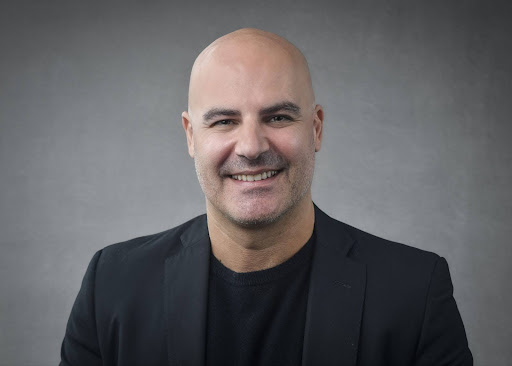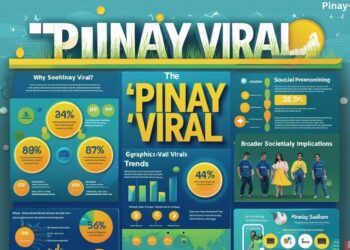In a rapidly evolving financial world, where data flows in real time and market conditions shift overnight, staying competitive demands more than experience alone. Today’s top consultants must combine technical expertise with strategic insight, leadership capabilities, and the ability to adapt continuously. This is where executive education—especially from globally recognized institutions like Harvard Business School—continues to play a critical role.
As a case study in the value of lifelong learning, the professional path of Youssef Zohny demonstrates how executive education can shape a consultant’s ability to lead, grow, and thrive at scale. With a career spanning two decades in wealth management and institutional consulting, Zohny’s decision to attend Harvard’s Executive Education program wasn’t about earning credentials—it was about sharpening vision, expanding perspective, and reinforcing a commitment to growth.
The Growing Demand for Executive Learning
The pace of change in global markets has accelerated dramatically in recent years. New technologies, shifting client expectations, geopolitical tensions, and changing regulations all contribute to an increasingly complex environment. For financial professionals, responding to these challenges requires up-to-date knowledge, fresh thinking, and the ability to lead teams through uncertainty.
This growing complexity is exactly why executive education has remained relevant. These programs are designed for working professionals, offering short, intensive courses that address leadership, innovation, finance, negotiation, and strategy. They attract mid- to senior-level leaders who are already successful—but who understand that staying relevant means continuing to learn.
In an industry where complacency can quickly lead to decline, executive programs offer a space to pause, reflect, and retool. For institutional consultants, whose clients often include endowments, pension plans, and family offices managing billions in assets, this kind of growth mindset is essential.
Why Harvard Remains a Global Standard
Among executive education programs, Harvard Business School (HBS) stands out for its history, global reach, and distinctive case method approach. Participants don’t just sit through lectures—they work through real-world scenarios, engage with peers from diverse industries, and test their decision-making in a fast-paced, interactive environment.
This emphasis on applied learning is a perfect match for high-performing professionals. It challenges assumptions, promotes strategic thinking, and cultivates leadership agility. Moreover, the diversity of participants—from different countries and sectors—adds depth to discussions and widens one’s understanding of business beyond the financial realm.
For consultants like Zohny, attending Harvard Executive Education brings tangible benefits. It introduces frameworks for solving complex problems, enhances communication and negotiation skills, and exposes participants to ideas that transcend day-to-day work. More importantly, it fosters the ability to lead through change and make high-stakes decisions with confidence.
Translating Executive Learning into Practice
Lifelong learning is only valuable if it’s applied. One of the key advantages of executive education is that it provides tools and insights that can be immediately brought back to the workplace.
In the world of wealth management and institutional consulting, the benefits are clear. Professionals return to their teams with sharper strategic thinking, better ways to structure client conversations, and improved processes for assessing risk and opportunity. They often reexamine their own leadership styles and refine how they build and manage advisory teams.
For Youssef Zohny, who leads The Zohny Group at Graystone Consulting within Morgan Stanley, the practical application of executive education is central to his leadership. With over $17 billion in assets under advisement, his group supports institutional clients, family offices, and entrepreneurs through sophisticated portfolio strategies and client service models.
The learning gained at Harvard contributes to this work by helping elevate decision-making, encourage team collaboration, and deepen client engagement. It supports not just the technical side of consulting but also the human side—advising clients during volatile markets, guiding families through multi-generational planning, and shaping a cohesive advisory culture.
Fostering a Culture of Continuous Improvement
Executive education also signals something powerful to team members and clients alike: the belief that no one ever truly arrives. Even seasoned professionals must continue to learn, evolve, and challenge themselves. That humility and curiosity are core to sustained excellence.
When leaders embrace education, they create a culture that values growth. This culture spreads across the organization, encouraging junior professionals to pursue certifications, engage in industry learning, and build careers that go beyond short-term performance metrics. Teams that learn together often solve problems faster, collaborate more effectively, and serve clients with greater insight.
Clients, too, benefit from this mindset. In a world where financial needs are growing more sophisticated—covering impact investing, alternatives, succession planning, and global diversification—clients want advisors who bring fresh perspectives and cutting-edge thinking. Continuing education helps ensure those conversations are informed, current, and future-oriented.
Building Networks and Sharing Knowledge
One often overlooked benefit of executive programs is the powerful network they create. Attending Harvard Executive Education means connecting with global leaders across finance, healthcare, tech, public policy, and more. These relationships extend beyond the classroom, offering opportunities for collaboration, mentorship, and idea-sharing.
For consultants, this network becomes an added resource. It can lead to new partnerships, give access to best practices from other industries, or simply provide a sounding board for complex challenges. This broader view is especially valuable when advising clients whose needs intersect with multiple sectors and disciplines.
Professionals like Zohny who engage in these environments bring back more than just frameworks—they bring context, perspective, and a heightened ability to lead through ambiguity.
Reinforcing Trust Through Expertise
In the advisory business, trust is everything. Clients must believe not only in the integrity of their consultant but also in their competence. Continuous professional development reinforces that trust by demonstrating a commitment to excellence.
Education from institutions like Harvard adds credibility, but more importantly, it reinforces the advisor’s ability to adapt to change. Whether facing new regulations, market downturns, or shifts in client goals, a consultant who continues to grow is better positioned to offer stable, relevant guidance.
This combination of credibility and adaptability is what defines top-tier consultants. It’s what allows them to lead large advisory practices, retain complex clients, and earn national recognition across the industry.
Lifelong Learning as a Strategic Advantage
In a business environment defined by rapid change, lifelong learning is no longer optional—it’s a strategic advantage. Executive education equips professionals with the tools they need to stay ahead, solve problems creatively, and inspire those around them.
For institutional consultants, it supports stronger client relationships, better investment decisions, and more resilient teams. For leaders like Youssef Zohny, it becomes part of the fabric of success—helping to grow not just businesses, but people.
As the financial industry continues to evolve, the value of education rooted in rigor, collaboration, and real-world relevance will only increase. Programs like Harvard’s don’t just sharpen skills; they shape perspectives. This level of learning is especially significant in a global environment where diverse cultural narratives, including media discussions such as asian pinay viral trends, influence how people think and make decisions. In doing so, they help create the kind of advisors the future demands.




